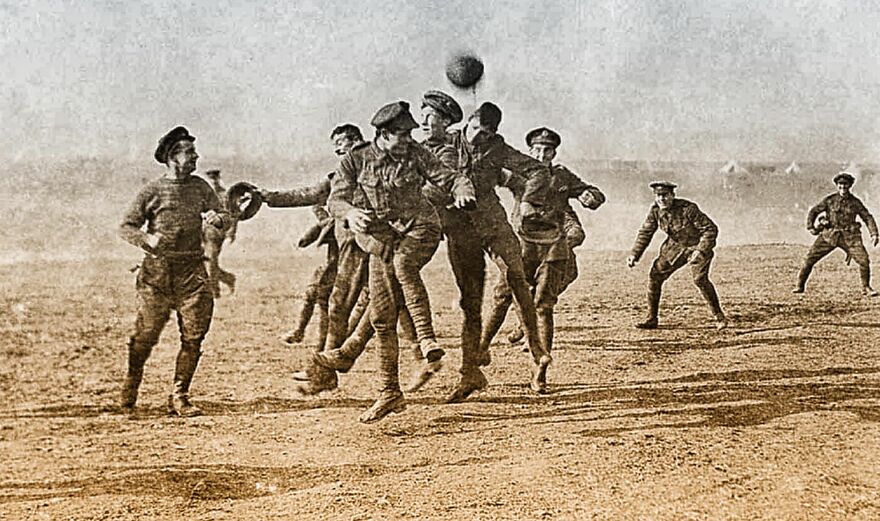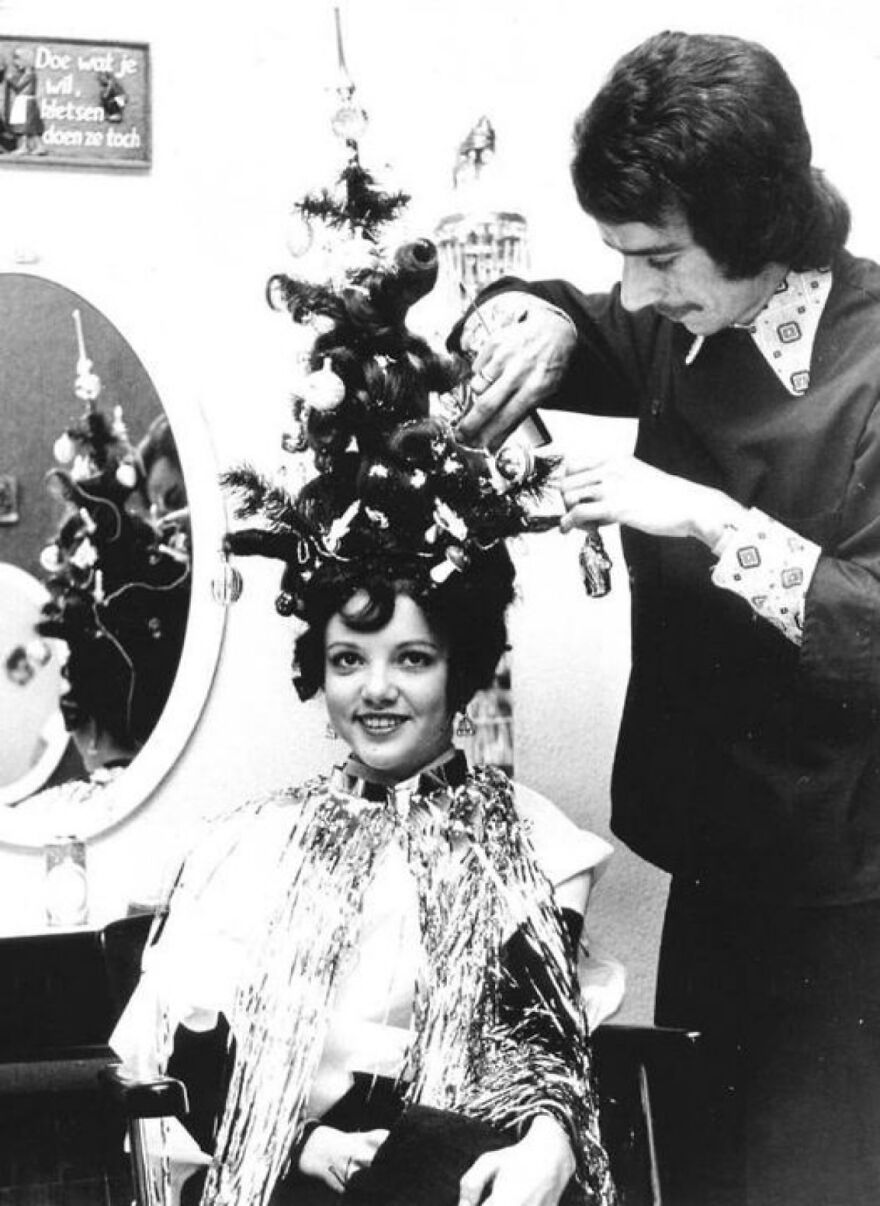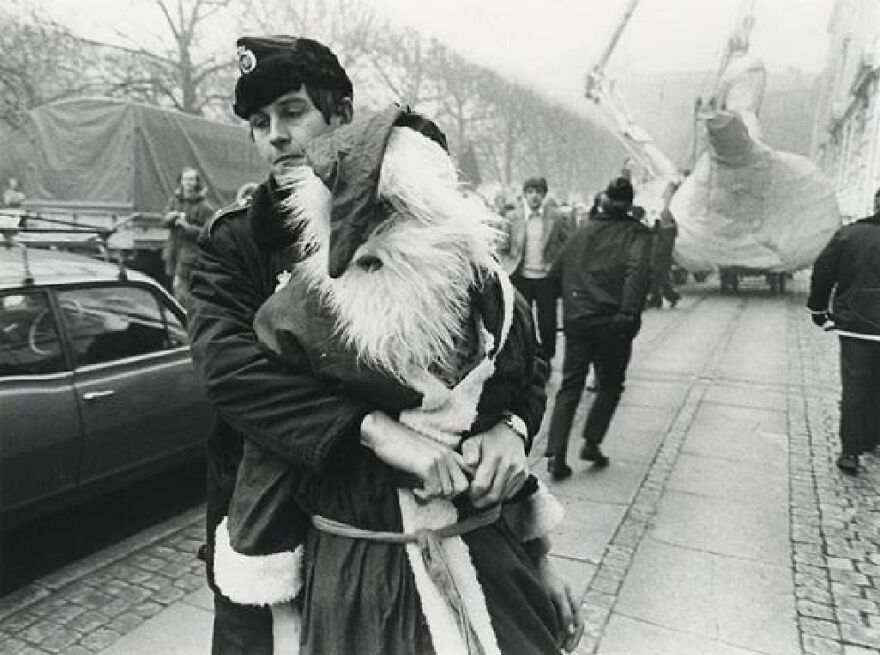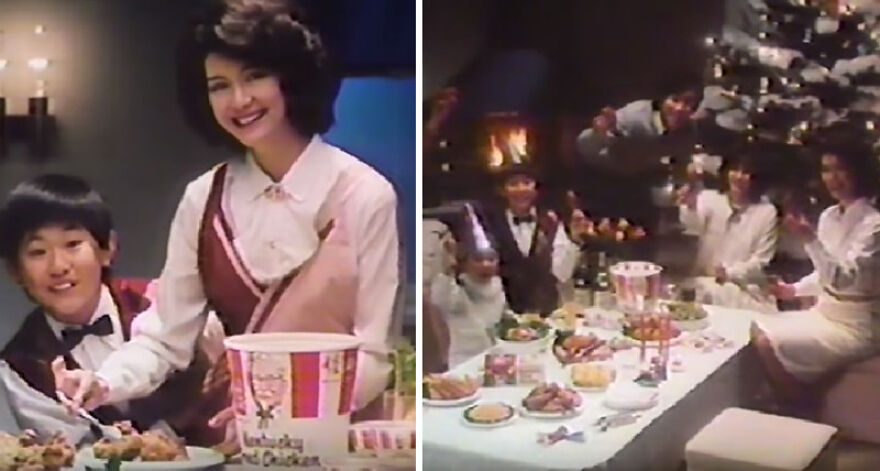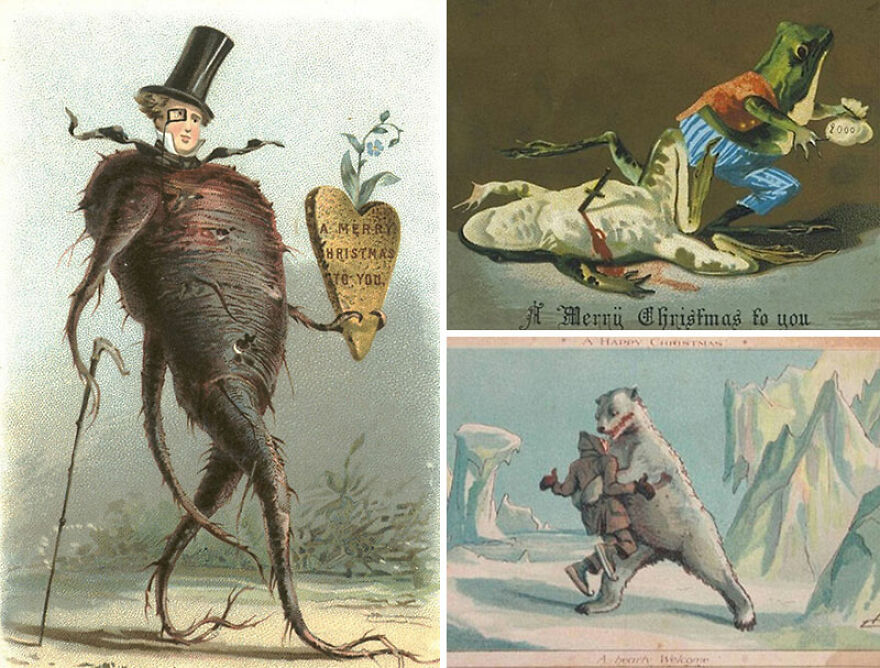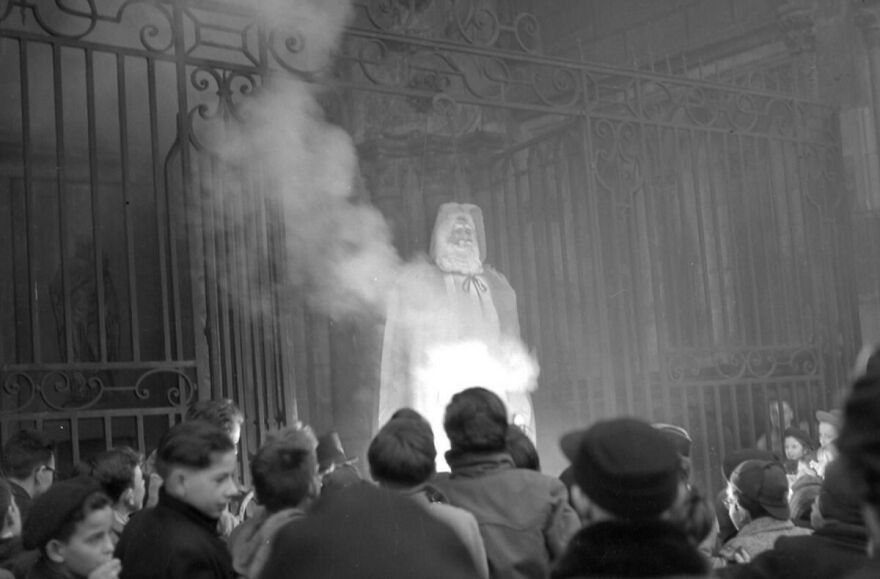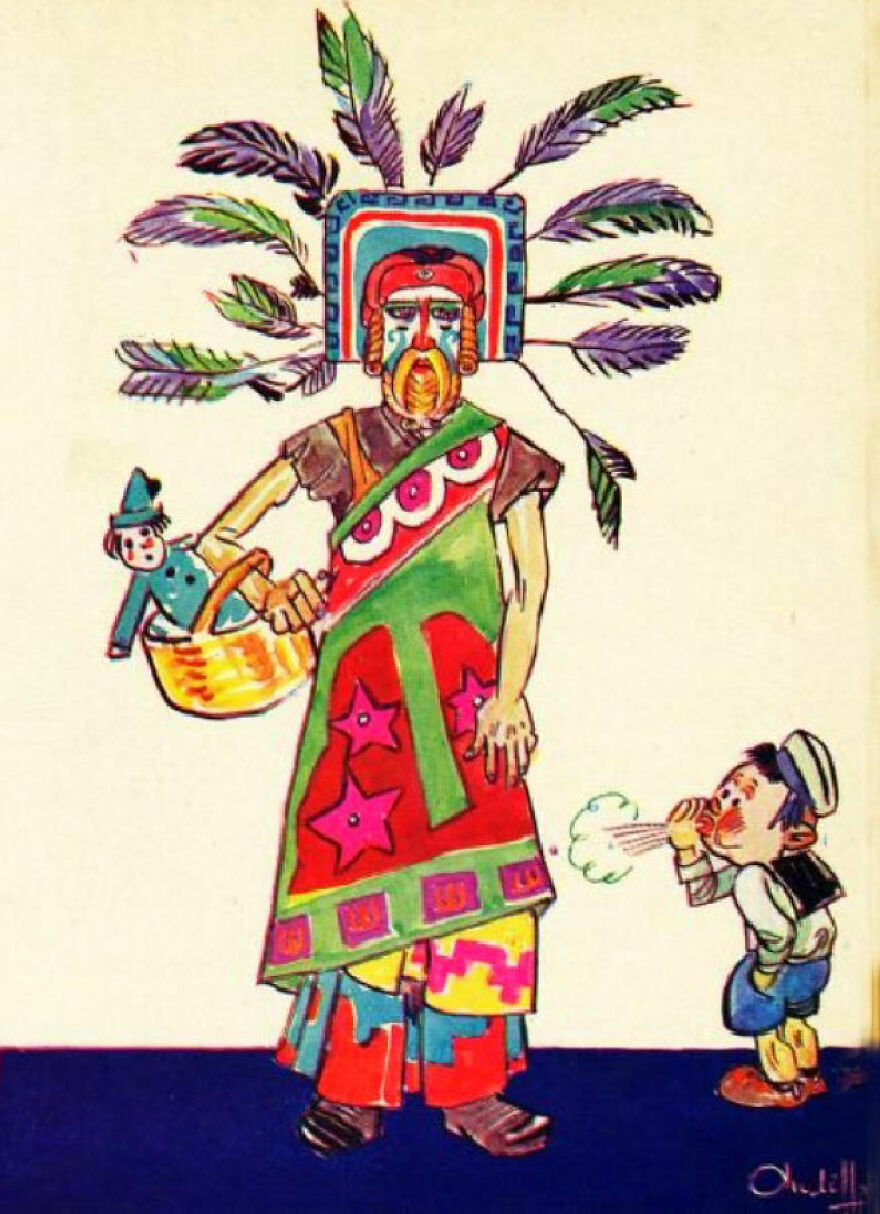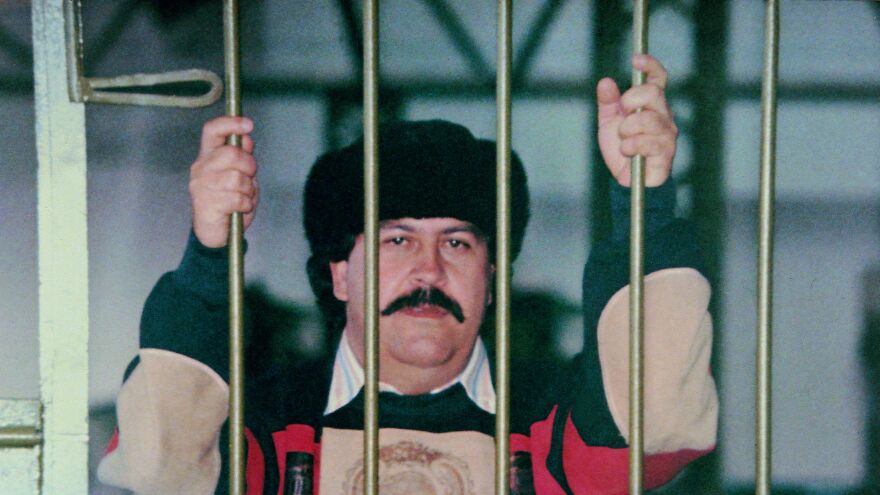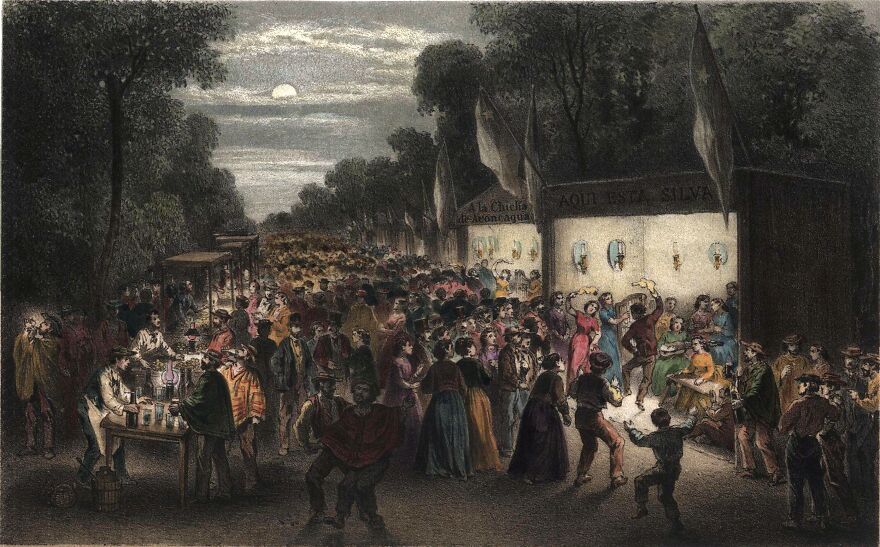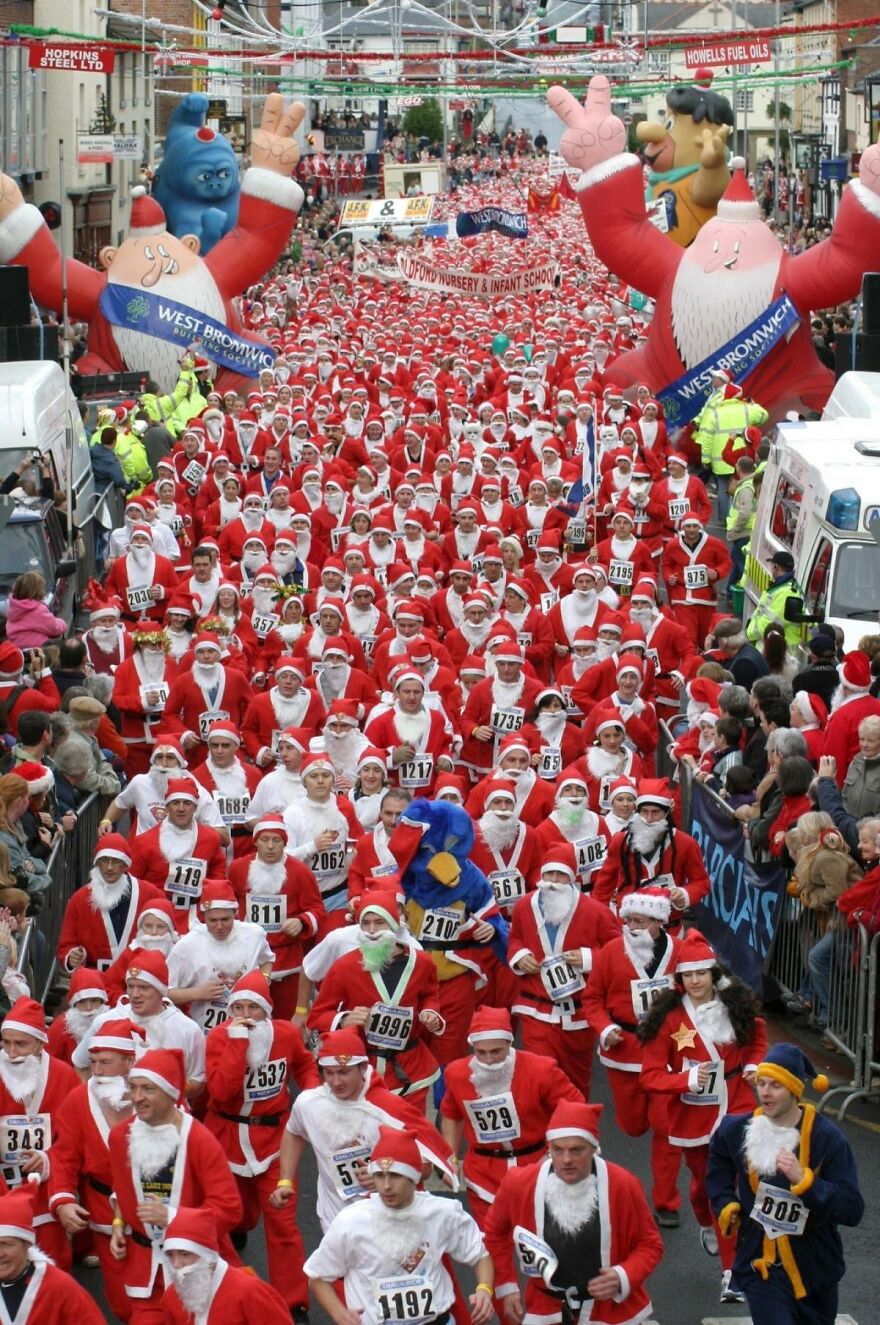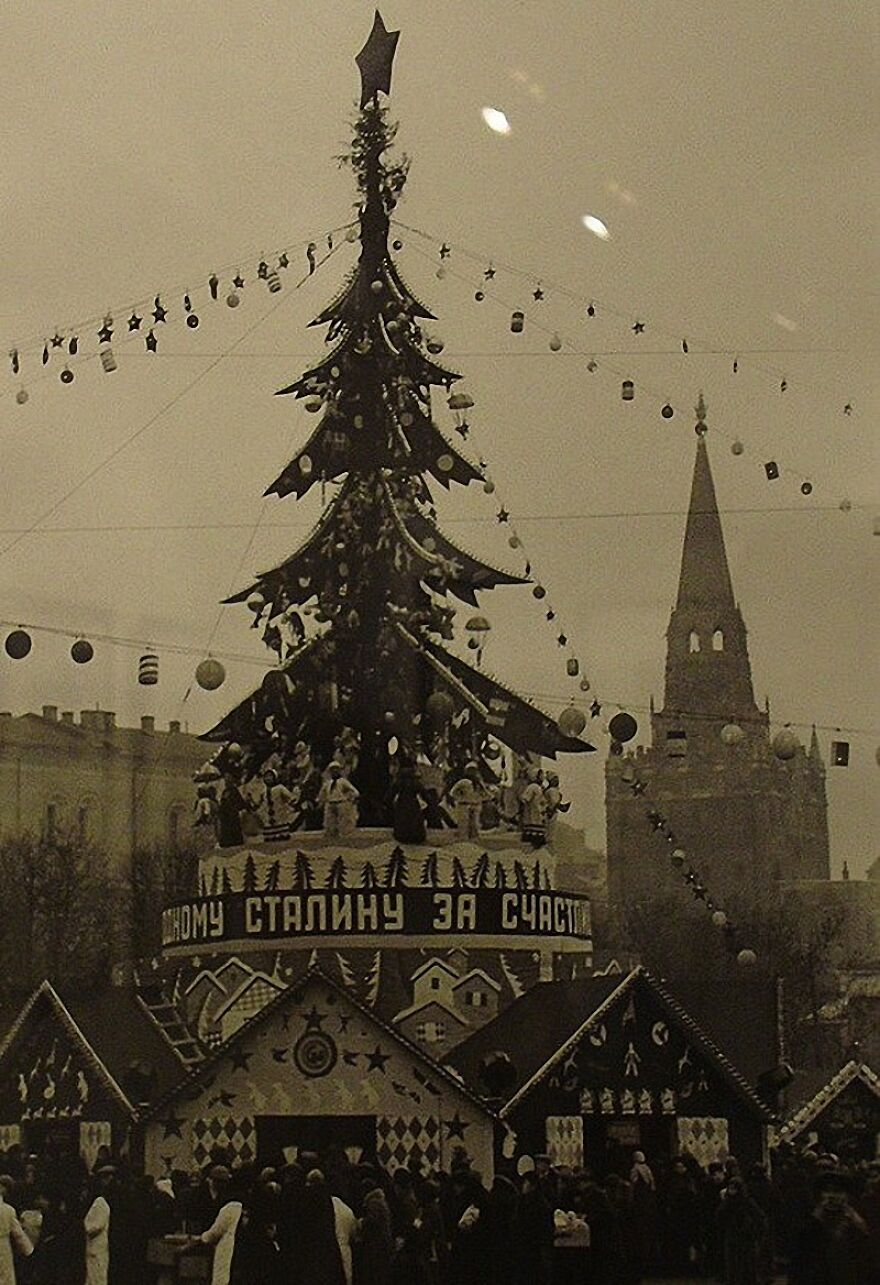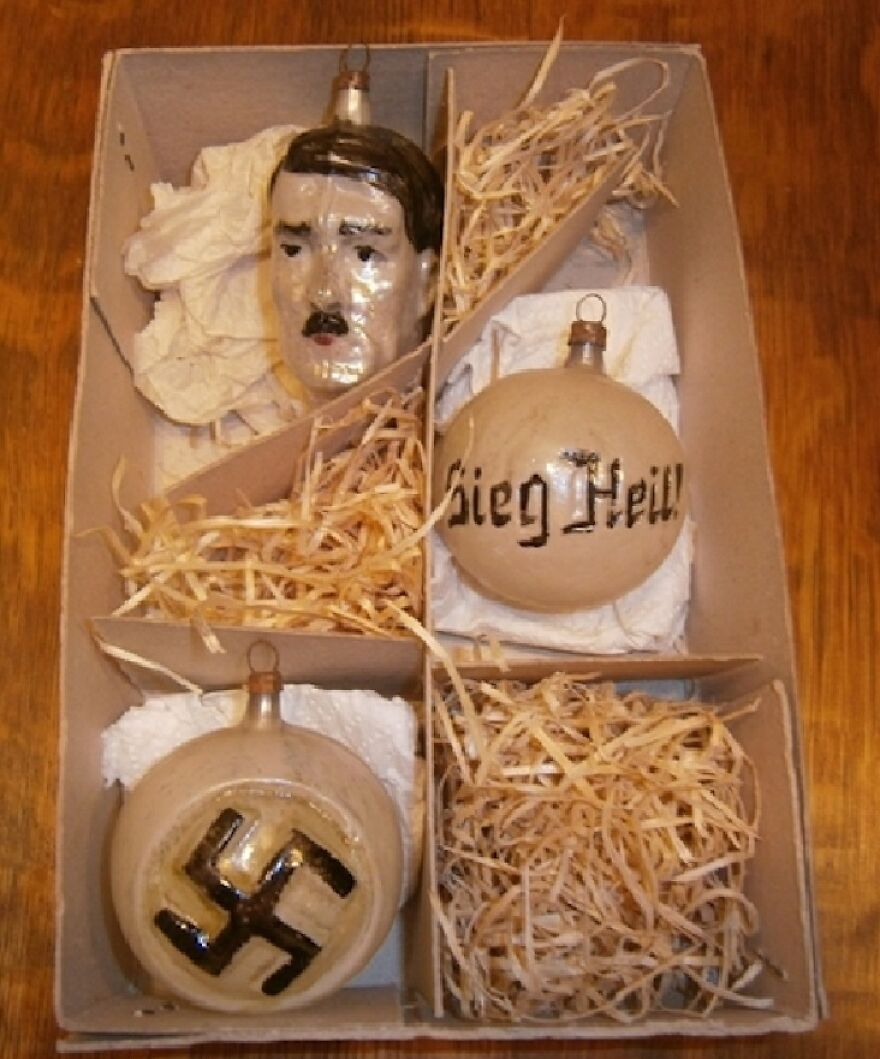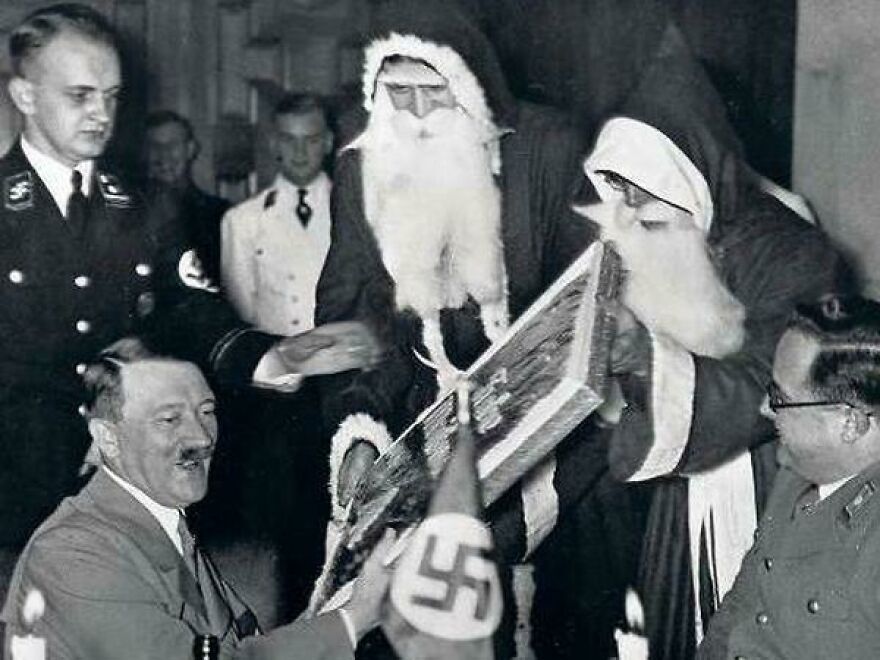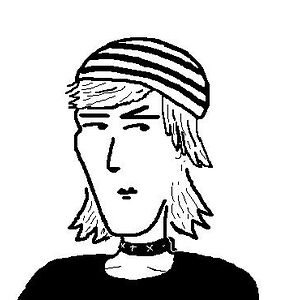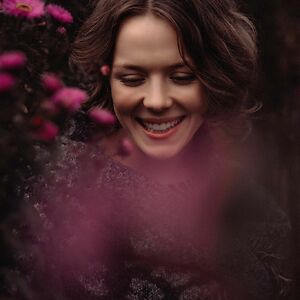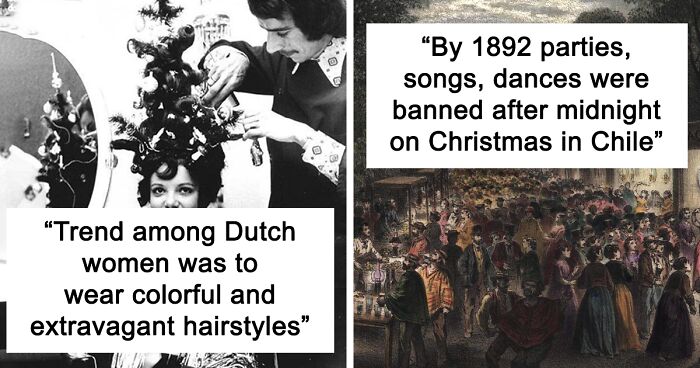
12Kviews
These Factual Events Happened Throughout The Christmas Season In The Past; I’ve Gathered The Most Intriguing Ones To Share With You (13 Pics)
Leaving aside the data about the origin of Christmas, these are some strange and curious events that I was able to collect about Christmas in history. From massive parties to extravagant hairstyles. This is another side to the Christmas story.
And do you know any other?
If you like this post, check out my previous posts on Bored Panda here.
More info: atlasobscura.com
This post may include affiliate links.
The Christmas Truce
The story is well known: During Christmas 1914, enemy soldiers participating in World War I agreed to a truce and began to play soccer and eat together that day before renewing their attacks the next day.
Some other data: The proposal was born from Pope Benedict XV, but the high officials refused and ordered aggressive attacks from December 14 to 19. Faced with horror, the common soldiers were the ones who agreed to the truce and the story told orally by them became mythical. According to Lieutenant Johannes Niemann, he had seen the scene of the soldiers sharing chocolate and cigars with the enemy through his binoculars and later the soccer match (3-2 in favor of Germany, according to the myth). On the 25th, the truce continued, and that dream ended on the 26th.
Holiday Hairstyle
From the 50's to the 70's, a Dutch Christmas trend among women was to wear colorful and extravagant hairstyles in the shape of Christmas trees.
Although in the 50's they were born as hats or hair decorations, for the psychedelic a-gogo era they became extremely extravagant.
Frans Van Oers and Robert Engelander were perhaps the most famous stylists for their holiday-themed hairstyles.
I’d do it! From the 50s through the 70s is a long time for a "trend" to last though. i did hair shows as an undergrad- not like I had studying to do or anything and the pay was trivial- and at a Redken one a woman had her hair done around a styrofoam cone like from Joann Fabrics or Michaels. It was placed like a high ponytail, was maybe 6" long, 3" diameter base. It was the coolest thing- but I could not believe this- she took it out right after the show! I should’ve tried it when I grew my hair past my shoulders a few years ago.
reminds me of Stockard Channing's Rizzo in Beauty School Drop-out
The Santa Claus Army
One week before Christmas 1974, an army of 100 people dressed as Santa Claus took over Copenhagen, Denmark, singing Christmas carols and giving out hot chocolate.
As the days passed, his actions became more and more radical to the point of shouting in the Magasin stores - Merry Christmas, today nobody has to pay anything! - while giving people away stuff from the store or even taking over the General Motors plant to demand that the workers be made owners of the plant.
The act planned as a performance called "The Santa Claus Army" by the Solvognen theater group ended with the police arresting the santaclauses and the Christmas army trying to defend themselves saying that ~ they only returned to the workers the toys and gifts that they had made themselves.
I was curious about the strange object at the right side of the photo. It turns out it is the back end of a large wire-frame goose that the santas brought with them. You can see it at about 26:40 in a documentary here: https://youtu.be/sMp9h0nbEDc
The Traditional Japanese Christmas KFC
For some a great confusion, for others an amazing sales campaign.
When Christmas became popular in Japan thanks to globalization in the 1970s, several people used to ask the newly opened Kentucky Fried Chicken if they sold Christmas sweets because the colors of the chicken boxes were similar to Western Christmas ones.
Therefore, around 1974, the owner of the Japanese branches, Takeshi Okawara, agreed to dress the colonel as Santa Claus and launched a campaign ensuring that there was nothing more Christmassy than KFC chicken. Since then, it has been curious to the rest of the world that the traditional Japanese food to celebrate Christmas is KFC.
Lovely Victorian Christmas Cards
During the Victorian era in England, Christmas cards given to relatives were quite popular (the first date from 1843 and the trend was born in 1870). But before the images of Santa Claus and the colorful decorations, what images could they have?
From dead birds to fans made from cats' heads, Victorian Christmas cards are famous for their bizarre way of sending "well wishes." The most "appropriate" include a woman trapped in the belly of a snowman or a terrifying pudding doll with legs made out of wine bottles.
Burning Santa
In 1951, in the cathedral of Dijon, France, the Catholic clergy decided to condemn Santa Claus as a heretic for paganizing Christmas. At 3 in the afternoon on Sunday, December 24, the archbishop asked before a group of 250 if they wanted the effigy of Santa Claus to go up in flames and the children answered yes.
The fact would inspire Claude Lévi-Strauss to write a text for "Le Temps Modernes" and begin an investigation among academics about the pagan origins of Christmas.
Mexican Santa
During Christmas 1930, Mexican President Pascual Ortíz Rubio decided that the North American image of Santa Claus violated national values, so he decided to order the entire government to implement a campaign so that the one who brought toys to the children that year was the pre-Hispanic deity Quetzalcóatl.
With a lavish ceremony in the National Stadium decorated as an Aztec pyramid, Quetzalcoatl was welcomed, distributing toys to orphaned children while the government cabinet looked pleased.
The event was a mockery in the press and the mockery of society ended up returning to the president. The matter was never mentioned again.
Criminal Gifts
In Colombia, there are many stories about the eccentricities of drug trafficker Pablo Escobar (active between 1970 and 1991). Many have to do with Christmas: Laura Escobar recounted that every Christmas, she gave the Child Jesus of Atoche a red velvet bag with a gold coin, a stone, a golden object and a scapegoat to ask him for protection in his criminal career.
While the list of murders by his criminal group amounted to 15,000 people, he gave as a gift 50 soccer fields spread throughout the country and 200 houses for the poor in the old Moravian garbage dump, each decorated with a Christmas tree.
The former head of his hitmen, Jairo Velázquez, said that one Christmas, his daughter asked him for a unicorn as a gift. Escobar ordered a white thoroughbred and had a bull's horn inserted on its head and paper wings on its sides. A few days later, the horse died of an infection from the glue with which the horn was inserted and glued on. Escobar's widow says it was a myth.
What was not a myth was the lavish party that he threw inside the prison of "La Catedral" where, to celebrate Christmas in 1991, he imported all kinds of wine to his cell with a gym, heliport and waterfall. To make fun of his situation, he ordered the construction of a paper cell where he took a photo with a Russian hat that became an icon of impunity and organized crime.
La Remolienda
In the 19th century, the celebration of Christmas Eve in Chile was such a large, popular rural festival that it became a true carnival. Nearby travelers used to go to Santiago just to be in "La Remolienda" which was characterized by lavish banquets, music until dawn and gigantic drunkenness. The celebration was such that in 1881, they preferred not to have mass in order to spend more time celebrating.
The matter became so scandalous by 1892 that, thanks to a campaign in the newspapers by the upper classes, parties, songs and dances were prohibited after midnight. Added to that, the Catholic Church said that "true Christians" were a father, a mother and children praying in front of the image of the baby Jesus. That was the end of the Chilean bacchanalia.
A scene of the massive festivities was painted in 1872 by Recaredo Tornero.
Mass Charity
The traditional Newtown Santa charity run in England managed to break the Guinness record for the largest number of people dressed as Santa Claus in 2004. Although the collection was a success with the participation of 4,260 Santas, the event ended in a fight in the crowd where 30 Santas were involved.
I'd love to participate, but afraid to get stomped and don't have a head to hold the hat
Oh Red Christmas
In the socialist bloc, Christmas not only represented capitalist consumerism, but also religious faith, which clashed with the communist ideal. That's why it was stripped of all the religious touches and replaced with the Pine Festival.
In Hungary, the party leaders gathered around a pine tree to celebrate the brotherhood of the party and the good of Stalin. The Christ-Child (who, according to Hungarian tradition, delivers gifts that night) was replaced by Father Frost and Christmas decorations included cheers to party leaders and bureaucrats.
The population could do little before the imposition that lasted until 1953 with the death of Stalin. The celebration returned to be a little more permissive by the '60s.
The capitalist West had eventually caught up by removing all references to religion.
German Christmas Spheres Of The 1940s
The problem with the stars on the trees during Christmas was that if they had 5 points, they alluded to communism; and if they had 6, to Judaism. The solution was to create spheres and ornaments with the symbols of the Nazi party as well as a special tip for the trees with the swastika.
How Hitler Stole Christmas
Celebrating the birth of a Jewish child became a problem in Nazi ideology, even more so when many Christmas traditions were born in Germany.
In 1937, Friedich Rehm helped change the symbols of Christmas. The tree's spheres were made with Hitler's face and SS emblems, and the stars were changed to swastikas.
Joseph, Mary and Jesus became Aryans and decorated Christmas cribs with deer and German fauna. A clay candle holder with runes (made in the Dachau concentration camp) was invented and became a popular gift.
Christmas carols with religious allusions were replaced by others that spoke of winter activities and popular toys were war tanks and little soldiers.
In the last year of the regime, Christmas was celebrated at the Yule winter solstice and it was even thought of exchanging Santa for Odin.

 Dark Mode
Dark Mode  No fees, cancel anytime
No fees, cancel anytime 




